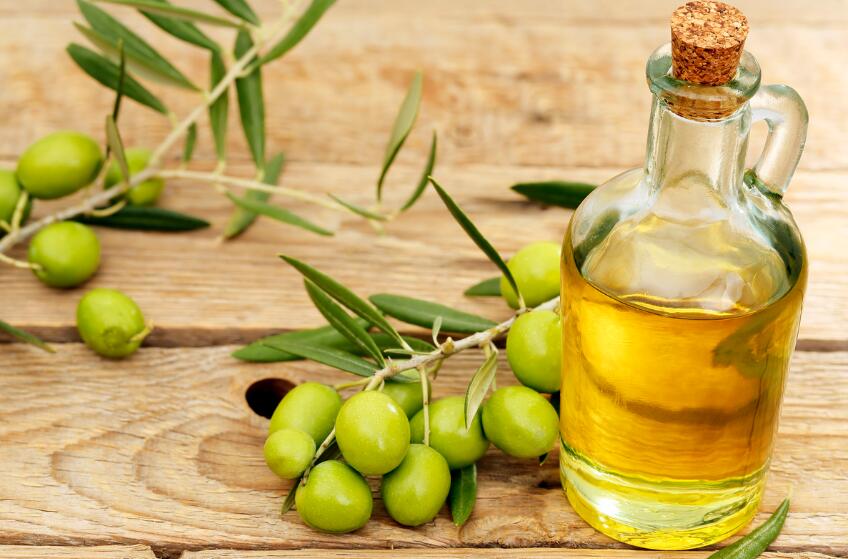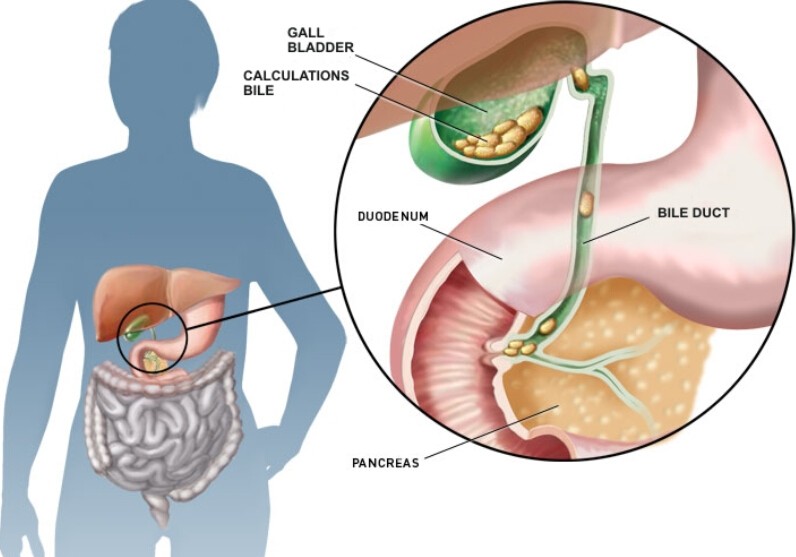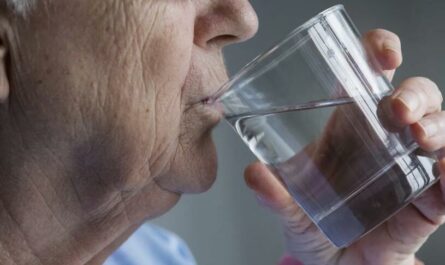Are you looking for a natural way to support your bladder health? Look no further than the humble olive oil. This is a staple in the Mediterranean diet that has been gaining attention for its potential to promote a healthy bladder. And the best part? It’s a natural, affordable, and readily available remedy that you can easily incorporate into your daily routine. In this article, we’ll explore 10 amazing benefits of olive oil for bladder health, and ore how to use it effectively.
What Makes Olive Oil So Beneficial for Bladder Health?
Before we explore the specific benefits, let’s take a closer look at what makes olive oil such a powerful ally for bladder health.
Olive oil is rich in monounsaturated fatty acids, particularly oleic acid, which has potent anti-inflammatory properties. Inflammation is a common culprit behind many bladder issues, from infections to interstitial cystitis.
Additionally, olive oil contains antioxidants like oleuropein and hydroxytyrosol, which can help neutralize harmful free radicals and protect cells from oxidative stress. This is particularly important for the delicate tissues of the urinary tract.

Top 10 Benefits of Olive Oil For Bladder Health
Now that we’ve covered the science behind olive oil’s potential benefits, let’s dive into the specific ways it can support bladder health:
1. Reduces the Risk of Bladder Cancer
Numerous studies have linked the Mediterranean diet, rich in olive oil, with a lower risk of various cancers, including bladder cancer. One large-scale study, the European Prospective Investigation into Cancer and Nutrition (EPIC), found that adherence to the Mediterranean diet was associated with a reduced risk of developing bladder cancer.
But how exactly does olive oil help reduce the risk of bladder cancer? The answer lies in its powerful antioxidant properties. Polyphenols, the primary antioxidants found in olive oil, have been shown to neutralize free radicals and prevent oxidative stress.
2. Fights Bladder Cancer Progression
Olive oil, especially extra-virgin olive oil (EVOO), is a rich source of polyphenols. It has been shown to possess potent anti-cancer properties.
In a study published in the Journal of Functional Foods, researchers found that polyphenols extracted from EVOO were able to block cell cycle progression. This suggests that olive oil polyphenols may have the potential to slow or stop the growth of bladder tumors.
In addition, olive oil’s anti-inflammatory properties may also play a role in fighting bladder cancer progression. Chronic inflammation has been linked to the development and progression of various cancers, including bladder cancer.
3. Enhances Bladder Cancer Treatment
Interestingly, olive oil may not only help prevent bladder cancer but also enhance the effectiveness of certain treatments. A recent study explored the use of an olive oil-based emulsion as a delivery vehicle for a novel bladder cancer therapy involving mycobacterium cells.
The researchers found that the olive oil emulsion helped preserve the viability of the mycobacterium cells and reduced clumping. This could improve their interaction with the bladder lining and enhance their anti-tumor effects.
This innovative approach highlights the potential of olive oil as a supportive agent in bladder cancer treatment. By improving the delivery and efficacy of therapeutic agents, olive oil may help increase the chances of successful treatment outcomes.
4. Reduces Inflammation in the Bladder
Chronic inflammation in the bladder can lead to various issues, including cystitis and interstitial cystitis. Olive oil’s anti-inflammatory properties may help reduce inflammation in the bladder and alleviate associated symptoms.
But how does olive oil exert its anti-inflammatory effects? The polyphenols in olive oil have been shown to inhibit the production of inflammatory molecules called cytokines. By reducing the levels of these inflammatory mediators, olive oil may help alleviate the symptoms associated with bladder inflammation.
5. Supports a Healthy Bladder Lining
The bladder lining, or urothelium, plays a crucial role in protecting the bladder from harmful substances and infections. Olive oil’s antioxidant properties may help protect the cells of the bladder lining from damage caused by free radicals and other environmental stressors.
But that’s not all – olive oil’s anti-inflammatory properties may also contribute to maintaining a healthy bladder lining. Chronic inflammation can damage the urothelium.
This makes it more susceptible to infections and other bladder-related issues. By reducing inflammation, olive oil may help preserve the integrity of the bladder lining and its protective functions.

6. Promotes Urinary Tract Health
Urinary tract infections (UTIs) are a common issue that can affect the bladder, urethra, and kidneys. While more research is needed, some studies suggest that olive oil’s antimicrobial properties may help prevent the growth of bacteria that can cause UTIs.
One study published in the Journal of Medicinal Food found that olive oil polyphenols exhibited antibacterial activity against various strains of bacteria. This includes those commonly associated with UTIs, such as Escherichia coli and Staphylococcus aureus.
But olive oil’s benefits for urinary tract health don’t stop there. Its anti-inflammatory properties may also help alleviate the symptoms associated with UTIs, such as burning and discomfort during urination.
7. Supports Detoxification
The bladder plays a vital role in eliminating waste and toxins from the body through urine. Olive oil’s anti-inflammatory and antioxidant properties may help support the body’s natural detoxification processes, promoting a healthy bladder and overall urinary system function.
By reducing inflammation and oxidative stress, olive oil may help optimize the function of the kidneys and bladder. This allows for more efficient elimination of toxins and waste products. This can help prevent the buildup of harmful substances that could potentially damage the bladder and other organs in the urinary system.
8. Improves Bladder Control
Bladder control issues, such as urinary incontinence, can significantly impact quality of life. While more research is needed, some studies suggest that the anti-inflammatory properties of olive oil may help reduce inflammation in the bladder and improve bladder control.
Inflammation in the bladder can contribute to overactive bladder symptoms, such as frequent urination and urgency. By reducing inflammation, olive oil may help alleviate these symptoms and improve bladder control, allowing individuals to regain confidence and live life more freely.
9. Promotes Overall Urinary System Health
The urinary system, which includes the kidneys, ureters, bladder, and urethra, plays a crucial role in filtering waste and maintaining fluid balance in the body.
Olive oil’s anti-inflammatory and antioxidant properties may help support the overall health of the urinary system. This can also reduce the risk of various issues, including kidney stones and bladder infections.
By reducing inflammation and oxidative stress, olive oil may help optimize the function of the kidneys, preventing the formation of kidney stones and reducing the risk of infections.
Additionally, its antimicrobial properties may help prevent the growth of bacteria that can lead to bladder infections.
10. Supports a Healthy Lifestyle
Incorporating olive oil into your diet is not only beneficial for bladder health but also promotes overall well-being. The Mediterranean diet is rich in olive oil. This has been associated with a reduced risk of various chronic diseases, including heart disease, diabetes, and certain types of cancer.
The Mediterranean diet’s emphasis on plant-based foods, healthy fats like olive oil, and moderate consumption of lean proteins and whole grains can help reduce inflammation.
It can also improve cardiovascular health, and promote a healthy weight. All of which can have a positive impact on bladder health and overall well-being.
Expert Advice: “The Mediterranean diet is widely recognized as one of the healthiest dietary patterns,” says Dr. Sarah Wilson, a registered dietitian. “By incorporating olive oil and other nutrient-rich foods from this diet, you’re not only supporting your bladder health but also promoting overall wellness and longevity.”

Practical Tips for Incorporating Olive Oil into Your Diet
Now that you know the remarkable benefits of olive oil for bladder health, you might be wondering how to incorporate it into your daily routine. Here are some practical tips:
- Cook with EVOO: Replace other cooking oils with extra-virgin olive oil whenever possible. Its robust flavor and high smoke point make it ideal for sautéing, roasting, and even baking. Try drizzling it over roasted vegetables or using it to sauté garlic and herbs for a flavorful base for soups and stews.
- Drizzle it on salads: A simple drizzle of EVOO can elevate the taste and nutritional value of your salads. Pair it with balsamic vinegar or lemon juice for a delicious dressing. You can also use it as a base for homemade vinaigrettes, incorporating fresh herbs and spices for added flavor.
- Use it as a dip: Whisk together EVOO, herbs, and spices for a flavorful dip for bread or vegetables. Try mixing it with roasted garlic, sun-dried tomatoes, or feta cheese for a Mediterranean-inspired dip.
- Add it to smoothies: A tablespoon or two of EVOO can add a creamy texture and a nutritional boost to your favorite smoothie recipes. It pairs particularly well with fruits like bananas, berries, and avocados.
- Incorporate olive oil-rich foods: Olives, pesto, and certain nuts (like almonds and walnuts) are also excellent sources of healthy fats and polyphenols. Try sprinkling chopped olives over salads, using pesto as a sandwich spread, or snacking on a handful of nuts for a nutritious boost.
Remember, moderation is key. While olive oil is generally considered safe, consuming excessive amounts can lead to weight gain and other potential side effects. Aim for 2-4 tablespoons of extra-virgin olive oil per day as part of a balanced diet.
Potential Side Effects and Precautions
While olive oil is generally well-tolerated, there are a few potential side effects to be aware of:
- Gastrointestinal discomfort: Consuming large amounts of olive oil can cause digestive issues like diarrhea, bloating, and nausea in some individuals. It’s best to introduce olive oil gradually into your diet and listen to your body’s cues.
- Allergic reactions: Although rare, some people may be allergic to olive oil or its components. If you experience symptoms like hives, swelling, or difficulty breathing after consuming olive oil, seek medical attention immediately.
- Medication interactions: Olive oil may interact with certain medications, such as blood thinners and diabetes medications. Consult your healthcare provider if you’re taking any prescription drugs to ensure safe consumption.
FAQs
Q: Is olive oil safe for everyone to consume?
A: “Olive oil is generally considered safe for most people when consumed in moderation,” says Dr. Emily Smith. “However, it’s always a good idea to consult with your healthcare provider, especially if you have any underlying medical conditions or are taking medications that could interact with olive oil.”
Q: Can olive oil interact with medications?
A: “While olive oil is generally safe, it’s important to be aware that it can potentially interact with certain medications, such as blood thinners or medications for diabetes,” explains Dr. Michael Jones. “It’s always best to consult with your healthcare provider before incorporating olive oil into your routine if you’re taking any medications.”
Q: How much olive oil should I consume for bladder health benefits?
A: “The recommended daily intake of olive oil can vary depending on individual factors, such as age, weight, and overall health,” says Dr. Smith. “However, as a general guideline, 1-2 tablespoons per day is considered a reasonable amount for most adults.”
Expert tip: “It’s also important to remember that olive oil is high in calories, so if you’re trying to maintain or lose weight, you’ll need to account for those extra calories in your overall diet,” adds Dr. Jones.
Q: Can olive oil cure bladder cancer or other serious conditions?
A: “It’s important to understand that while olive oil may offer potential benefits for bladder health, it should never be used as a sole treatment for serious conditions like bladder cancer,” cautions Dr. Jones. “It should be used as a complementary therapy alongside conventional medical treatments prescribed by your healthcare provider.”






